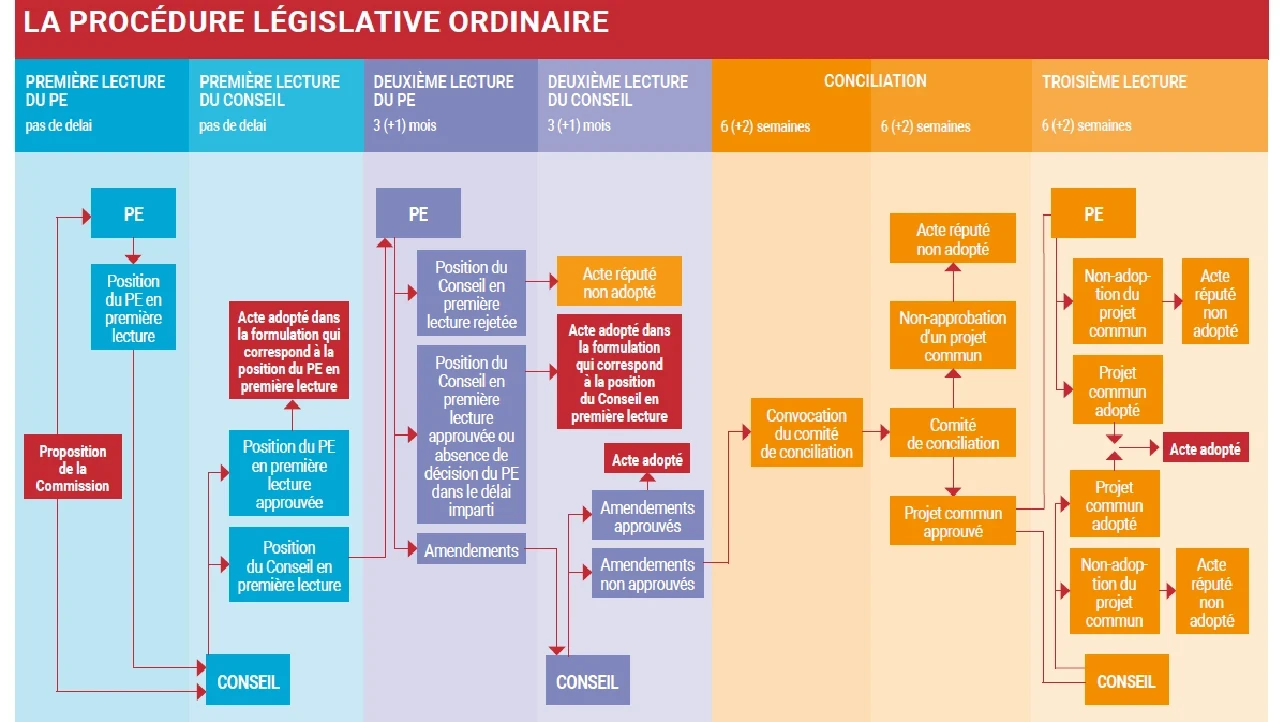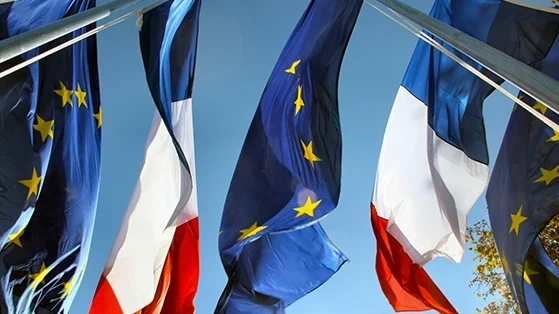Energy regulation
Since the adoption of the first community measures on the internal energy market in the mid-1990s, the minimum regulatory obligations imposed on Member States and the core competencies of regulatory authorities have been harmonised and strengthened. Proper cooperation and coordination between national regulatory authorities is essential to continued integration of the electricity and gas markets in Europe.
CRE is cooperating closely with its European counterparts to create a genuine internal market in energy in the European Union.
The Council of European Energy Regulators (CEER)
CRE has been a member of the Council of European Energy Regulators (CEER) since its creation in March 2000.
A Belgian-registered non-profit organisation, the CEER brings together the regulators of EU Member States, along with those from Iceland and Norway. It organises training sessions for its members, to improve their capabilities and promote the sharing of experience. It also hosts observers from six regulators in Switzerland, Macedonia, Bosnia, Moldova, Montenegro and Georgia.
CRE is heavily involved in the CEER’s activities. In addition to attending all of the CEER’s General Meetings, CRE has the equivalent of 20 full-time staff devoted to European activities.
- When the CEER was re-organised in 2017, CRE obtained the co/vice chairmanship of two working groups.
- the Market Integrity and Transparency Working Group (MIT WG), responsible for issues relating to transparency and oversight of the wholesale markets, along with links between sectoral legislation and legislation applicable to the financial markets. Fadhel Lakhoua, director at CRE, is vice-chairman of this WG;
the Gas Working Group (GWG), responsible for issues relating to the trans-European gas transmission networks and the design of the gas market. Benoit Esnault, head of department at CRE, is vice-chairman of this WG.
The agency for the cooperation of energy regulators (ACER)
CRE has been a member of the Agency for the Cooperation of Energy Regulators (ACER) since it was created by Regulation (EC) N°713/2009 of 13 July 2009.
ACER, which has been up and running since 3 March 2011, helps national regulatory authorities to carry out their European regulatory roles and, if necessary, coordinates or sometimes completes their work. It is notably responsible for ensuring that the European networks of electricity and gas transmission network operators (ENTSO-E and ENTSO-G) abide by the European network codes. It has individual decision-making powers on cross-border issues, such as access and security conditions or exemptions.
The ACER and CEER have several shared working groups (electricity, gas, market integrity) in which CRE participates.
The dialogue between the CRE and the European institutions
To guarantee security of supply, European solidarity and the competitiveness of the industry for the benefit of consumers, the European Union is actively promoting competition in the energy markets and energy trading between Member States. To this end, European lawmakers have entrusted national regulators with the task of guaranteeing;
- Non-discriminatory access to electricity and gas networks;
- Real competition between market participants;
- Optimum interconnection between networks.
In addition to these objectives, regulators are also required to promote the energy transition and the deployment of renewable energies. Following the Paris Agreement of 12 December 2015, the European Commission unveiled plans in November 2016 to review the EU’s entire body of energy and climate legislation, as part of an ambitious package of reforms designed to ensure “clean energy for all Europeans”.
To promote smoother market integration, CRE has decided on a policy of active engagement within the various coordination bodies, and in particular the Agency for the Cooperation of Energy Regulators (ACER), and the Council of European Energy Regulators (CEER), while taking part in permanent dialogue with the European institutions to improve the internal market in energy.
CRE has representation with all three parts of the EU’s “institutional triangle”, namely the Commission, the Council and the European Parliament.

The European Commission
CRE follows the work of various European Commission departments and executive agencies, and in particular;
- the Directorate-General for Energy (DG ENER), which is responsible for developing and implementing European energy policy;
- the Directorate-General for Competition (DG COMP), which is responsible for developing and implementing competition rules in the European Union;
- the Directorate-General for Justice and Consumers (DG JUST), which is responsible for developing and implementing consumer protection measures in the European Union;
- the Directorate-General for European Neighbourhood Policy and Enlargement Negotiations (DG NEAR), which is responsible for implementing the EU’s enlargement policies and assisting neighbouring countries through projects and programmes.
The Transport, Telecommunications and Energy Council (TTE)
The energy ministers of EU Member States meet in the Transport, Telecommunications and Energy Council (TTE), the exact composition of which varies depending on the items on its agenda.
The European Council
The European Council brings together the Heads of State and of Government of the Member States, and determines the main policy directions of the European Union.
The European Parliament
The European Parliament’s energy policy work is prepared by the Committee on Industry, Research and Energy (ITRE), then submitted for adoption by the plenary assembly of the European Parliament.
The legislative decision-making process
Competency for implementing energy policy is shared between the institutions and the Member States (as per Article 194 of the Treaty on the Functioning of the European Union).
Measures intended to achieve the EU’s energy targets are taken jointly by the Parliament and the Council, based on proposals by the Commission in accordance with the “ordinary legislative procedure” or “co-decision”.
See the diagram showing the co-decision procedure
The legal instruments adopted by the institutions of the European Union include:
- Directives, which set objectives to be achieved by Member States, without dictating the mean of achieving them.
- Regulations, which are completely mandatory and apply directly in all Member States

Forums for dialogue and regional initiatives
CRE participates in the forums set up by the European Commission to promote European consultation between market participants, on issues to do with regulation of the internal market in energy.
At these forums, the Commission, the national regulatory authorities, Member States and interested parties discuss general and technical matters to support the development of the internal market.
Florence Forum
Created in 1998, the Florence Forum is dedicated to the regulation of the electricity market. It convenes twice a year, on average.
Madrid Forum
The Madrid Forum was set up in 1999, on the same lines as the Florence Forum, to deal with issues relating to the functioning of the natural gas market. It convenes twice a year, on average.
Dublin Forum
The Citizens’ Energy Forum deals with regulatory issues concerning the retail markets and the protection of European electricity and gas consumers. Created in 2008 as part of negotiations on amendments to European energy legislation, it convenes once a year.
Copenhagen Forum
The Energy Infrastructure Forum, known as the Copenhagen Forum, was created in November 2015. It deals with regulatory and financial issues relating to the development and strengthening of European energy infrastructures.
European regional cooperation
Launched in 2006 by the regulators and the EU Commission, the regional electricity and gas initiatives aim to promote the integration of regional electricity and gas markets through concrete measures.
CRE participates in the regional initiatives of four of the seven electricity regions, and two of the three gas regions, in close cooperation with its counterparts and the Agency for the Cooperation of Energy Regulators (ACER).
In the electricity sector, CRE is actively involved in regional initiatives:
- Centre West: Germany, Belgium, France, Luxembourg, Netherlands, Austria;
- CORE region: France, Belgium, Luxembourg, Netherlands, Germany, Austria, Poland, Czech Republic, Slovakia, Hungary, Slovenia, Romania, Croatia;
- South Centre: Germany, Austria, France, Greece, Italy, Slovenia;
- South-West: Spain, France, Portugal;
- France - UK – Ireland.
See work done as part of regional electricity sector initiatives
In the gas sector, CRE is actively involved in regional initiatives:
- North-West: Germany, Belgium, Denmark, France, Great Britain, Northern Ireland, Republic of Ireland, Netherlands, Sweden;
- South: Spain, France, Portugal.
